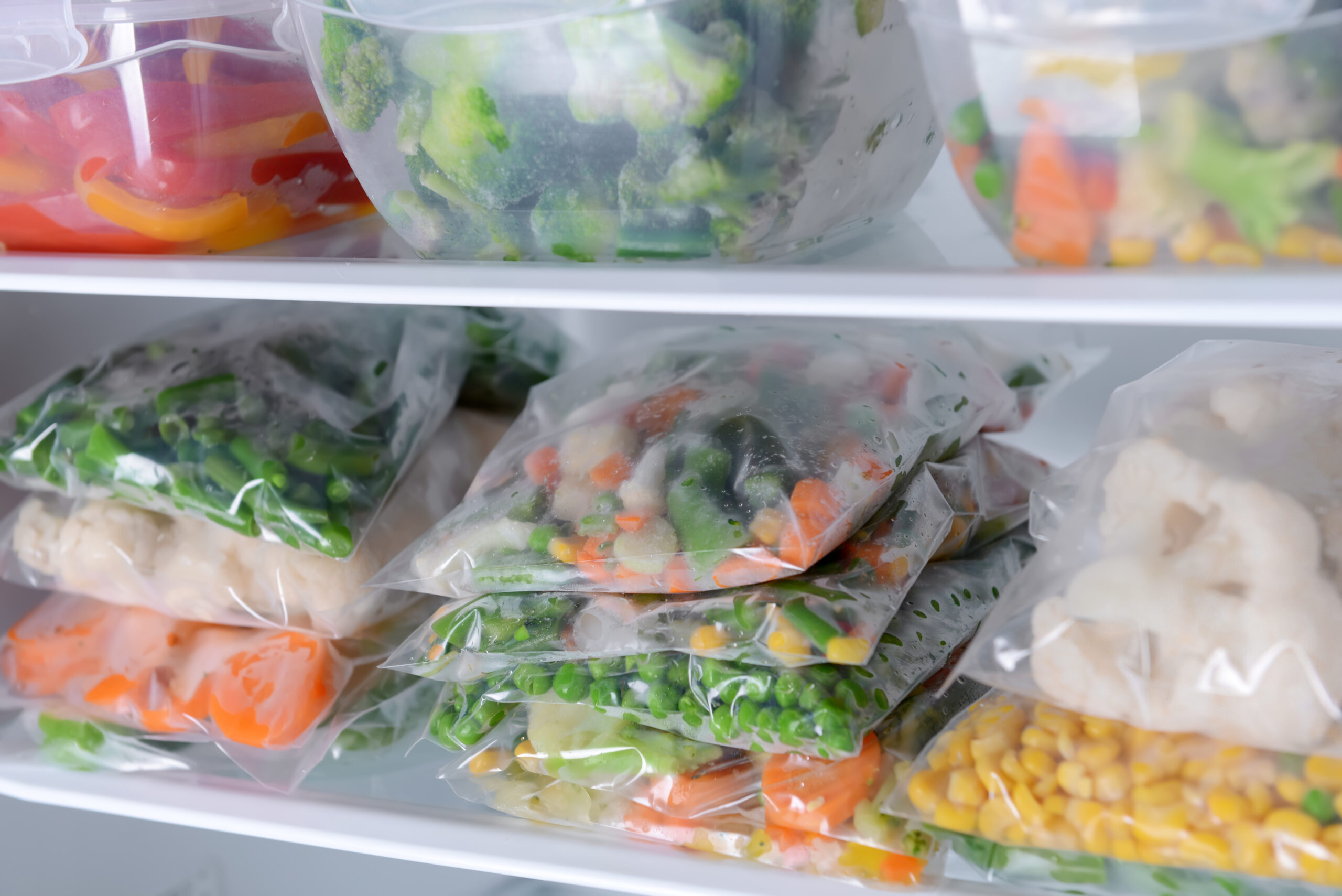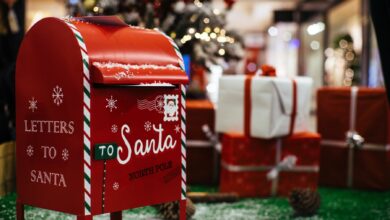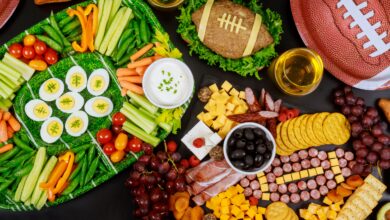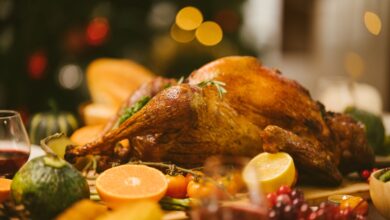A
A
A
Freezing is a convenient and quick way to preserve food for your family. Fruits and vegetables frozen at home have higher quality. Whether you are freezing fresh produce or last night’s left-overs, you can combat food waste, and have plenty of food on standby for future enjoyment.
Food Safety Tips For Freezing
Freezing food does not kill foodborne bacteria. It only slows down bacterial reproduction. This is why food does not spoil when it is frozen. Once you thaw it, the bacteria will become active again. Upon thawing, food must be cooked or eaten. Before you freeze food, make sure your freezer is at zero degrees Fahrenheit or colder. A refrigerator-freezer thermometer is a must-have. You can usually purchase a set for under 10 dollars. One is for the freezer and the other is for the fridge.
Read More »
Storage and Containers
Freezer bags and plastic containers work best. Be sure to get bags that are labeled as freezer bags. Do not get regular plastic bags or sandwich bags. Freezer bags are thicker and made of plastic that is non-brittle when placed in the freezer. Ordinary storage and sandwich bags will become brittle and expose food. Glass is not good for freezer storage either since it can crack with rapid temperature changes.
Portions
Whenever possible, freeze individual-sized portions. This will speed up defrosting and help avoid food waste. You can divide stews and soups into smaller bags of just one or two portions each. Do this instead of freezing a whole batch in a single container. It will help you reduce the amount of food that is wasted.
Tip:
Completely removing all of the air from freezer bags and containers is not possible. You still want to make sure that you remove as much as you can. Some freezer burn can be expected after a while, but it should not be in excess. If you intend to do a good amount of freezing, invest in a vacuum sealer. A good vacuum sealer will remove all of the air.
Fresh Meat and Seafood
You must freeze these foods right away. Do not keep them in the fridge to freeze days later. This can pose health hazards.
Remove these items from the plastic and styrofoam supermarket trays. Divide your ground meat into patties or portions before freezing them. To extend shelf life, double wrap these items in two layers of plastic wrap. If you choose to use one layer of plastic wrap, further secure it with a freezer bag. This will help prevent freezer burn.
Eggs
Whole fresh eggs expand when frozen and will break the shell. Hard-boiled or cooked eggs become rubbery when frozen. The best way to freeze eggs is raw and cracked into a resealable freezer-safe container. Beat the egg lightly and add a pinch of salt. Decide how many eggs you need and freeze that amount. Egg yolks and whites can also be frozen separately.
Fresh Produce
Tip: Small sheet pans work well for freezing banana slices, berries, green beans, or other small fruits and veggies. This works well because you can arrange them so that they don’t stick together. Initially, you can spread them out on the sheet pan to freeze them and then transfer them into freezer bags.
Fresh Vegetables
Vegetables need to be blanched before you freeze them. Preparing vegetables for blanching varies depending on the type of vegetable. For example, broccoli will need to be cut into florets, carrots should be peeled and sliced, and peppers need to be seeded as well as sliced. You want to prepare the food in the form you plan to eat it in.
To blanch them means that you will just boil them for one or two minutes and then immediately place them into an ice bath to halt cooking. Next, drain and dry them thoroughly so they don’t develop frost. Then spread them on a sheet pan to freeze them and later transfer them to freezer bags.
Leafy vegetables such as ad kale and lettuce don’t freeze well due to high water content. For this same reason, raw tomatoes don’t freeze well either.
Fresh Fruits
When freezing fresh fruit you can skip blanching. A banana can be frozen in the peel. Although the peel turns brown, the fruit will remain fresh and bright. Banans can be stored for up to three months.
Cooked meals
It is important to cool your cooked food thoroughly before freezing it. Adding hot food to the freezer can cause food-safety hazards. This is because the extra amount of time the food spends cooling will place it in the food temp danger zone. Putting hot food in the freezer also warms up other food that is stored, making it unsafe for consumption.
Overall freezing food is a simple and healthy practice that prevents food waste.






